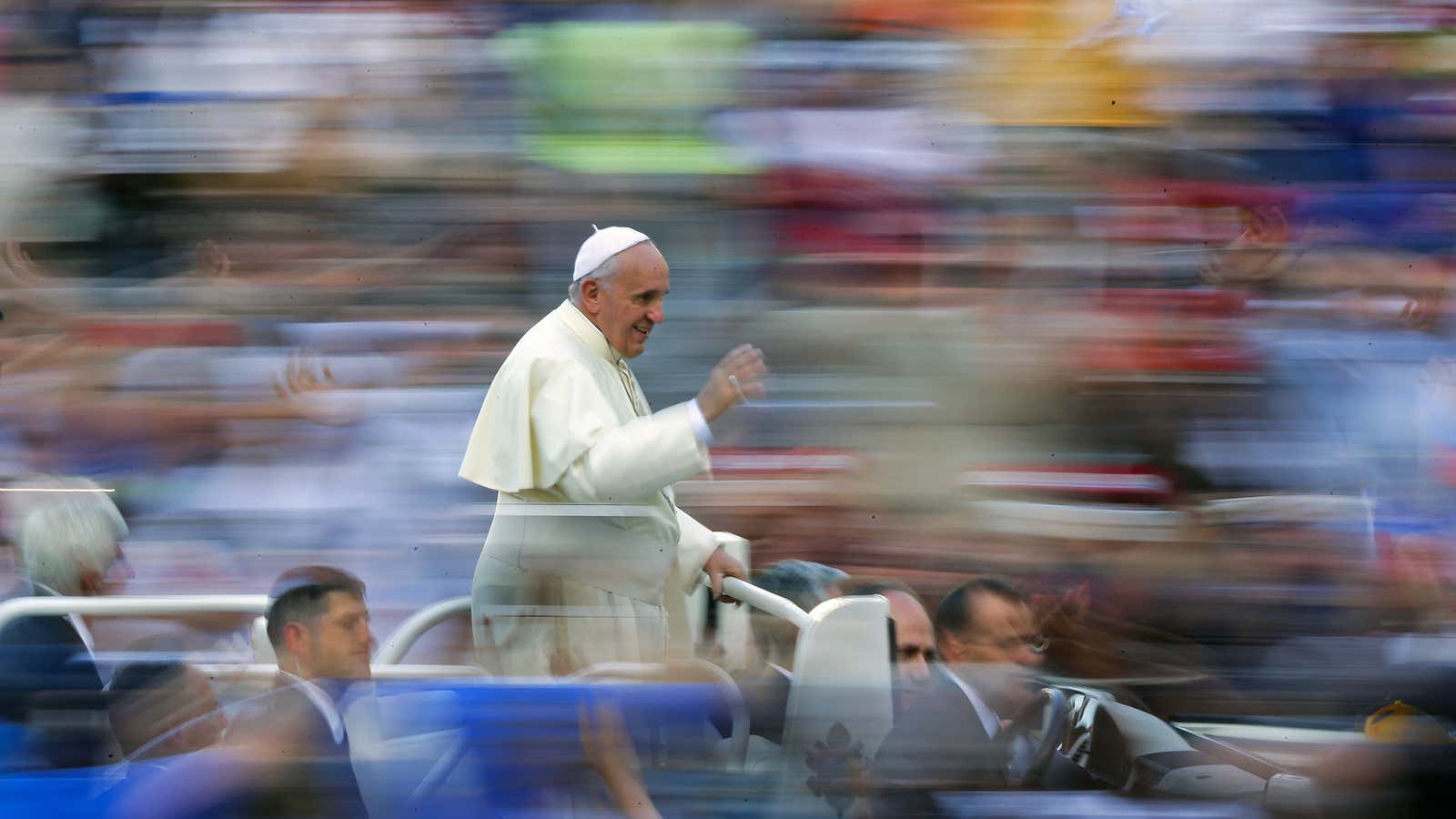The incredible popularity and broad outreach efforts of the Roman Catholic Church’s Pope Francis have raised hopes that he will try to mend relations between the church and Beijing during a trip to Asia in August.
Beijing and the Vatican have not held official talks for six decades, despite the fact that together they hold sway over more than one-third of the world’s population. In recent years the relationship between the two has been downright hostile—in 2010 Beijing nominated several bishops to its state-recognized Catholic church without the Vatican’s approval, resulting in the church’s first ex-communications since the 1950s.
So far, there is no official confirmation that the Pope is considering a stop in China before or after his visit to South Korea, but there are plenty of signs that relations are thawing. Pope Francis said in an interview earlier this year that he had written to Chinese President Xi Jinping soon after both leaders were appointed, and “he answered me,” he said. “There are some relations.” Pope Francis also appointed a cardinal who spent years working behind the scenes on the church’s relations with Beijing as his secretary of state .
This week, though, a influential Catholic leader in Hong Kong sounded an alarm about the wisdom of a mainland China stop, one that the Vatican should probably heed. Hong Kong cardinal Joseph Zen Ze-kiun said he would advise the Pope: ”Don’t come, you will be manipulated.” The Communist Party would only show Pope Francis the “illegitimate bishops” it tried to appoint years ago, the cardinal said, and keep him from visiting with Catholics loyal to the Vatican.
The Hong Kong cardinal’s views highlight the conundrum China presents for Pope Francis. There are an estimated 12 million Catholics in China, but they are divided between the Chinese Patriotic Catholic Association, a group created by Communist Party in 1957 that does not recognize the Vatican as its head, and an underground, technically illegal, Catholic church that recognizes the Pope (and still has millions of members).
Visiting China in an official capacity would almost certainly require a meeting with the former, but Pope Francis would be unlikely to want to come without a promised meeting with the underground group as well, which would embarrass Beijing.
President Xi and Pope Francis share strikingly similar aims—namely, to curb corruption and lavish spending in their institutions, while increasing transparency and accountability to their subjects. Both have warned on the danger of pursuing material wealth, as Quartz reported. Given their overlapping agendas, the institutions would benefit from better ties.
In a public address in St. Peter’s Square on May 21, Pope Francis called for Catholics around the world to pray for all Catholics in China, and for their ability to bring about “harmonious living with their fellow citizens.” The same prayer also applies for leaders in the Vatican and Beijing.
